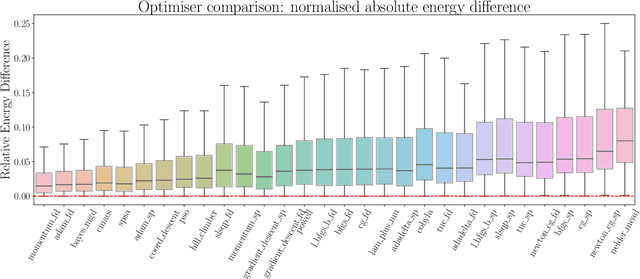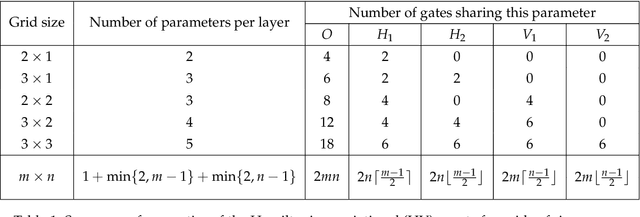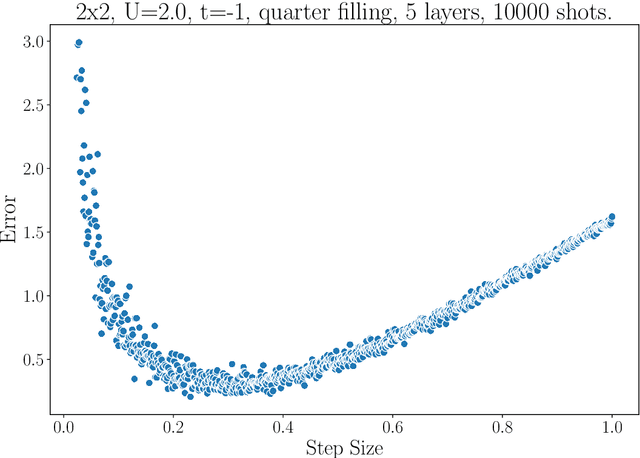Ashley Montanaro
Benchmarking a wide range of optimisers for solving the Fermi-Hubbard model using the variational quantum eigensolver
Nov 20, 2024



Abstract:We numerically benchmark 30 optimisers on 372 instances of the variational quantum eigensolver for solving the Fermi-Hubbard system with the Hamiltonian variational ansatz. We rank the optimisers with respect to metrics such as final energy achieved and function calls needed to get within a certain tolerance level, and find that the best performing optimisers are variants of gradient descent such as Momentum and ADAM (using finite difference), SPSA, CMAES, and BayesMGD. We also perform gradient analysis and observe that the step size for finite difference has a very significant impact. We also consider using simultaneous perturbation (inspired by SPSA) as a gradient subroutine: here finite difference can lead to a more precise estimate of the ground state but uses more calls, whereas simultaneous perturbation can converge quicker but may be less precise in the later stages. Finally, we also study the quantum natural gradient algorithm: we implement this method for 1-dimensional Fermi-Hubbard systems, and find that whilst it can reach a lower energy with fewer iterations, this improvement is typically lost when taking total function calls into account. Our method involves performing careful hyperparameter sweeping on 4 instances. We present a variety of analysis and figures, detailed optimiser notes, and discuss future directions.
Quantum algorithms for learning graphs and beyond
Nov 17, 2020
Abstract:We study the problem of learning an unknown graph provided via an oracle using a quantum algorithm. We consider three query models. In the first model ("OR queries"), the oracle returns whether a given subset of the vertices contains any edges. In the second ("parity queries"), the oracle returns the parity of the number of edges in a subset. In the third model, we are given copies of the graph state corresponding to the graph. We give quantum algorithms that achieve speedups over the best possible classical algorithms in the OR and parity query models, for some families of graphs, and give quantum algorithms in the graph state model whose complexity is similar to the parity query model. For some parameter regimes, the speedups can be exponential in the parity query model. On the other hand, without any promise on the graph, no speedup is possible in the OR query model. A main technique we use is the quantum algorithm for solving the combinatorial group testing problem, for which a query-efficient quantum algorithm was given by Belovs. Here we additionally give a time-efficient quantum algorithm for this problem, based on the algorithm of Ambainis et al.\ for a "gapped" version of the group testing problem. We also give simple time-efficient quantum algorithms based on Fourier sampling and amplitude amplification for learning the exact-half and majority functions, which almost match the optimal complexity of Belovs' algorithms.
 Add to Chrome
Add to Chrome Add to Firefox
Add to Firefox Add to Edge
Add to Edge